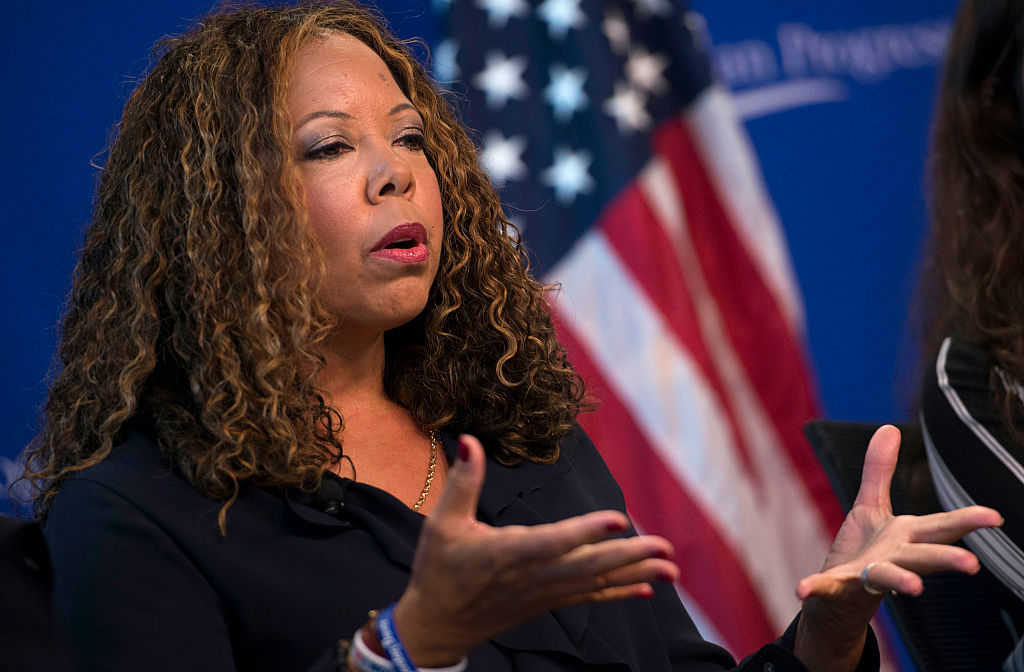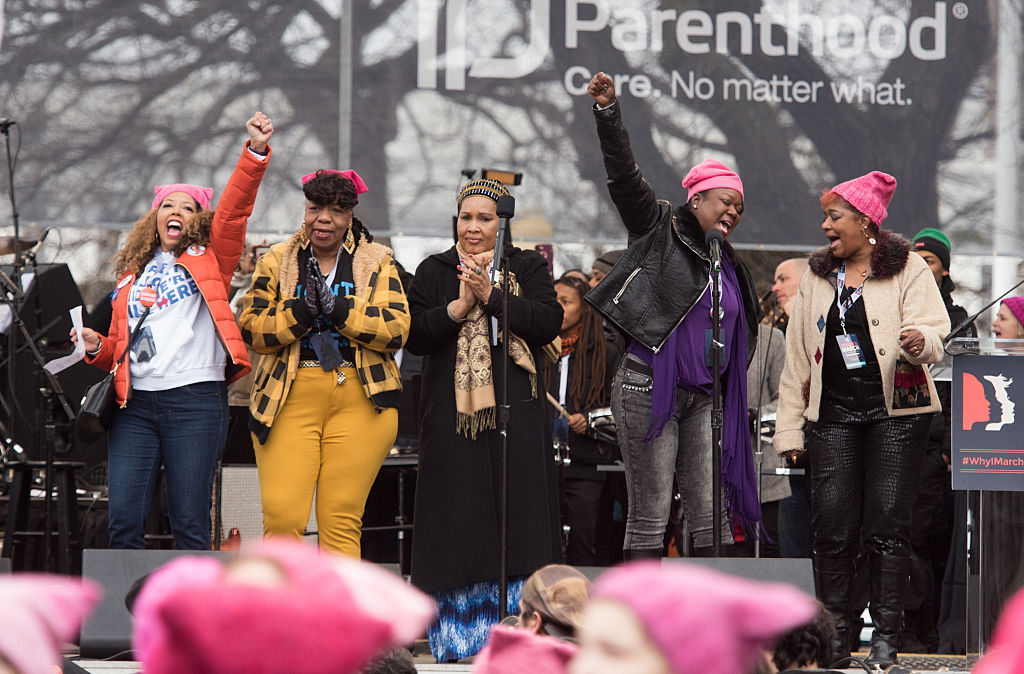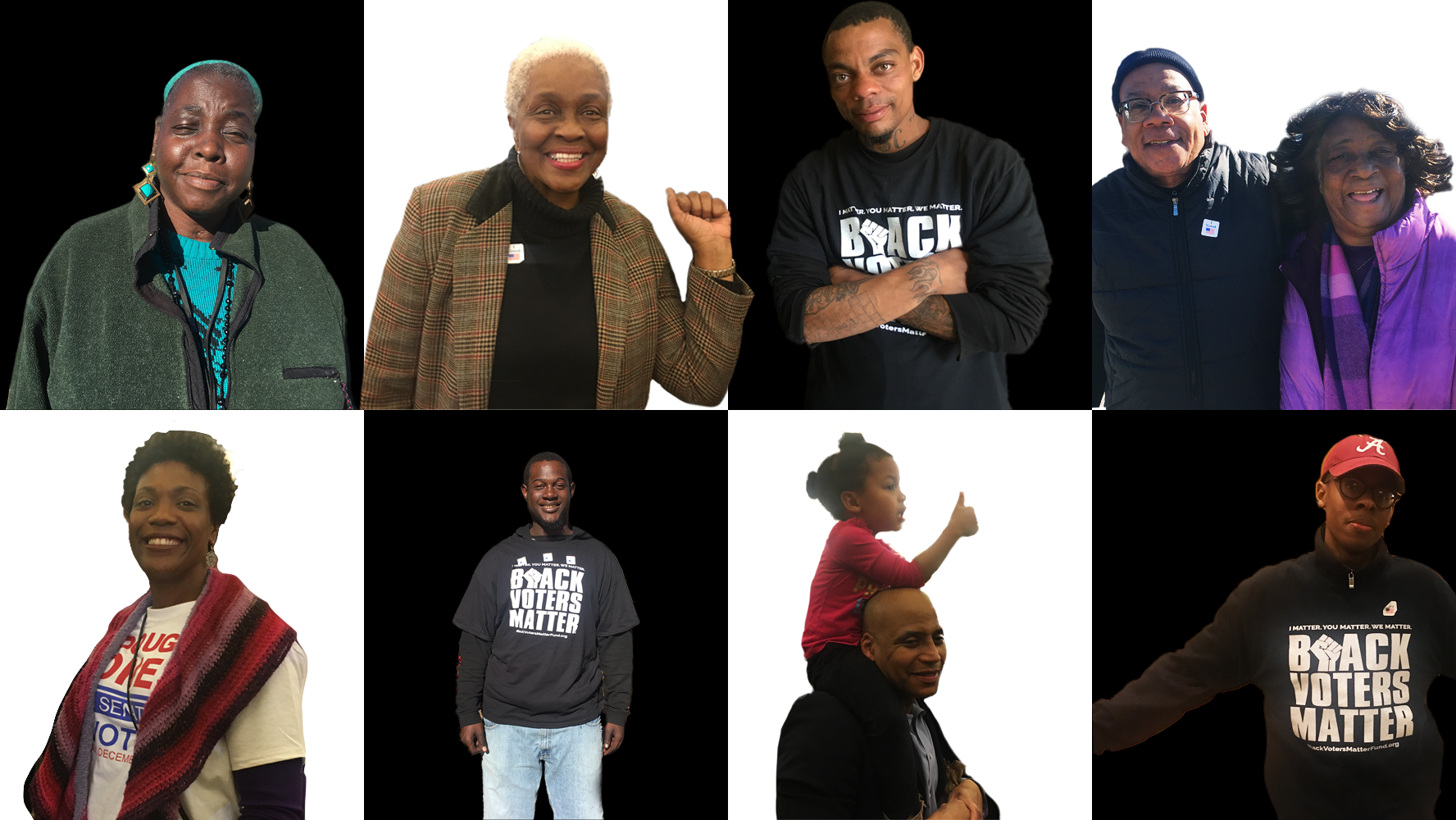Lucia “Lucy” McBath watched Sunday night’s telecast of the Golden Globe Awards and, like millions of other viewers, was awed by Oprah Winfrey’s rousing speech that rallied women to challenge sexism and to become politically empowered.
“It was a phenomenal speech,” McBath told me a few days later. “She’s a great orator and sometimes it takes a great speech like that to motivate people to get people off their behinds and go to work.”
McBath wasn’t merely sitting at home, watching television and daydreaming about rich and famous people, though. Since last summer she’s been hard at work herself, running to earn a seat to represent an Atlanta-area district in the Georgia House of Representatives.
I called McBath because her months-old campaign for the 37th District seat hasn’t received a fraction of the attention that Oprah garnered overnight for her Golden Globes speech — but it should. Just as nearly everyone on the planet knows Oprah, anyone who takes serious the function of democracy should know McBath’s name and her story because it lifts up and empowers black women. Her path to politics is a case study in the transformation of tragedy to triumph. And, especially if she wins in November, she is well-positioned to truly effect change.
McBath is one among an uncounted many. Across the land, black women are entering the political fray, potentially in places where they’ve been nonexistent in the past. For example, nearly all political observers credit black women for the election of Sen. Doug Jones (D) in Alabama’s hotly contested special election late last year.
Gina Womack, executive director of Families and Friends of Louisiana’s Incarcerated Children, a New Orleans-based organization that works with children at risk of being imprisoned and their families, likes to quote the late Rep. Shirley Chisholm, the first black woman elected to Congress in 1968, who famously said, “If they don’t give you a seat at the table, bring a folding chair.”
In a recent op-ed in The Hill she wrote that women are motivated now more than ever to become political players:
Since Trump’s election, women have overwhelmingly felt the negative side-effects of this new administration; we fear the loss of family due to deportation, more incarceration, inequitable education for our children, and other infringements on our constitutional rights.
In an email interview, Womack told me, “Black women are tired and angry. We are recognizing our collective power and seizing the moment.”
Part of this is a backlash to President Donald Trump’s election, which sent millions of women across the country into the streets to protest during his inauguration, letting loose the resistance movement to his administration. Organizations like Emily’s List, which helps women mount campaigns and get elected, and She Should Run, which supports prospective female candidates with tips and strategy, have reported 20,000 and 15,000 new sign ups with last November. But those organizations typically work more closely with white women and there’s scant data on how many of those new candidates are African American.
Blogger Luvvie Ajayi is trying to remedy the dearth of information. She posted a link to her Facebook and Twitter accounts that spawned a movement to catalog the names and websites of black women running for office this year. So far, her effort has identified about 100 black women seeking office in mostly state and local elections.
It’s a shame that each of these black women aren’t known and celebrated as household names. Worse, it’s a telling indictment of our celebrity-obsessed society that seemingly serious people are talking about Oprah, a billionaire business mogul who is wildly popular for being on television, running for president in 2020.
Womack agreed that black women running for seats should get “an equivalent buzz” but are largely unknown.
“I love Oprah and think she is a serious social change agent in her own right, however there are women who are on the front line with impacted people that are running and winning and we need to lift them up,” she said. “I’m always stunned by people’s excitement behind celebrities and them being put on a pedestal when some of them have no idea how politics work — and Trump is a prime example of that.”
Glynda Carr and Kimberly Peeler-Allen, co-founders of Higher Heights for America, are building a platform to identify, promote, and encourage black women to advance in elections.
“While progressives overall suffered significant losses in 2016, the number of Black women holding political office actually increased,” Carr told me in an email. “We currently have the most number of Black women (21) in history serving in Congress, and we elected the second Black woman ever to serve in the Senate [Kamala Harris, a California Democrat]. And 2018 marks the largest number of black women (7) to simultaneously serve as mayors of a large city. These wins show having Black women on the ticket creates enthusiasm among voters.”
To be sure, there are black women right in front of us, all across the country, actively engaged in social movements, community building, and political organizing who have what it takes to get elected. They deserve a spotlight on their efforts just as much or more than Oprah.
McBath is a prime example. The one-time Delta Airlines flight attendant and single mother became a gun control activist following the fatal shooting of her 17-year-old son, Jordan Davis.
Davis was shot and killed in 2012 at a Jacksonville, Florida gas station by a white man, who complained about loud rap music coming from the car where he sat in the backseat with friends. Michael David Dunn, a software developer, was convicted of first-degree murder in 2014 and is currently serving a life sentence without parole for the shooting.

In the grief-filled years following her son’s death, McBath spoke out against gun violence and its impact on families, especially within black communities, eventually emerging as a national spokesperson for Moms Demand Action for Gun Sense in America, a grassroots anti-violence lobby. Her passionate testimony and advocacy work during Hillary Clinton’s unsuccessful presidential run prompted friends and colleagues to urge her to run for office.
During our conversation, McBath said she repeatedly pushed aside notions of running for office, but admitted she became convinced to do so after Trump’s election and as she saw conservative political leaders begin to unwind some of the limited progress made by her fellow activists. In particular, McBath said she was personally incensed after Georgia Gov. Nathan Deal (R) signed into law a grossly unpopular measure allowing college students to carry concealed weapons on campus, even though he had vetoed similar legislation in the past.
“I was pretty outdone by that,” she told me. “I had to gaze into my mirror and say to myself, look what’s happening in my own backyard.”
The tipping point, however, came during a breakfast meeting last June with a state legislator, whom McBath assumed at the time only wanted her advice on gun issues. Instead, Rep. Renitta Shannon, who represents a neighboring Atlanta suburban district, told McBath she had to run.
“We need you,” McBath recalled Shannon saying. “I just sat there for a moment and then it rolled off my tongue. That’s when I said, OK. And I’ve been off and running ever since.”
UPDATE, 2/5: While ThinkProgress stands by the reporting and analysis contained in this piece, She Should Run took issue with the way their organization is portrayed. The following is a statement from the group: “While She Should Run fully supports the premise of this opinion column, the theory put forward about our organization is inaccurate. If we had been contacted to get the facts straight, we would have said that our community reflects the great diversity of our county and we are proud of our core mission, which is to have underrepresented voices run for office. Our government should be a reflection of the people it governs. We can’t be our best if half of the population doesn’t have a seat at the table.”

